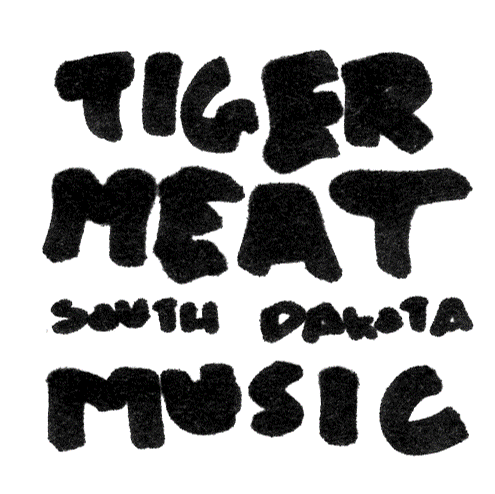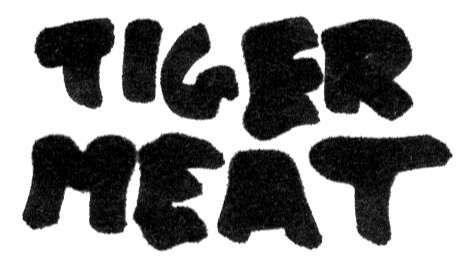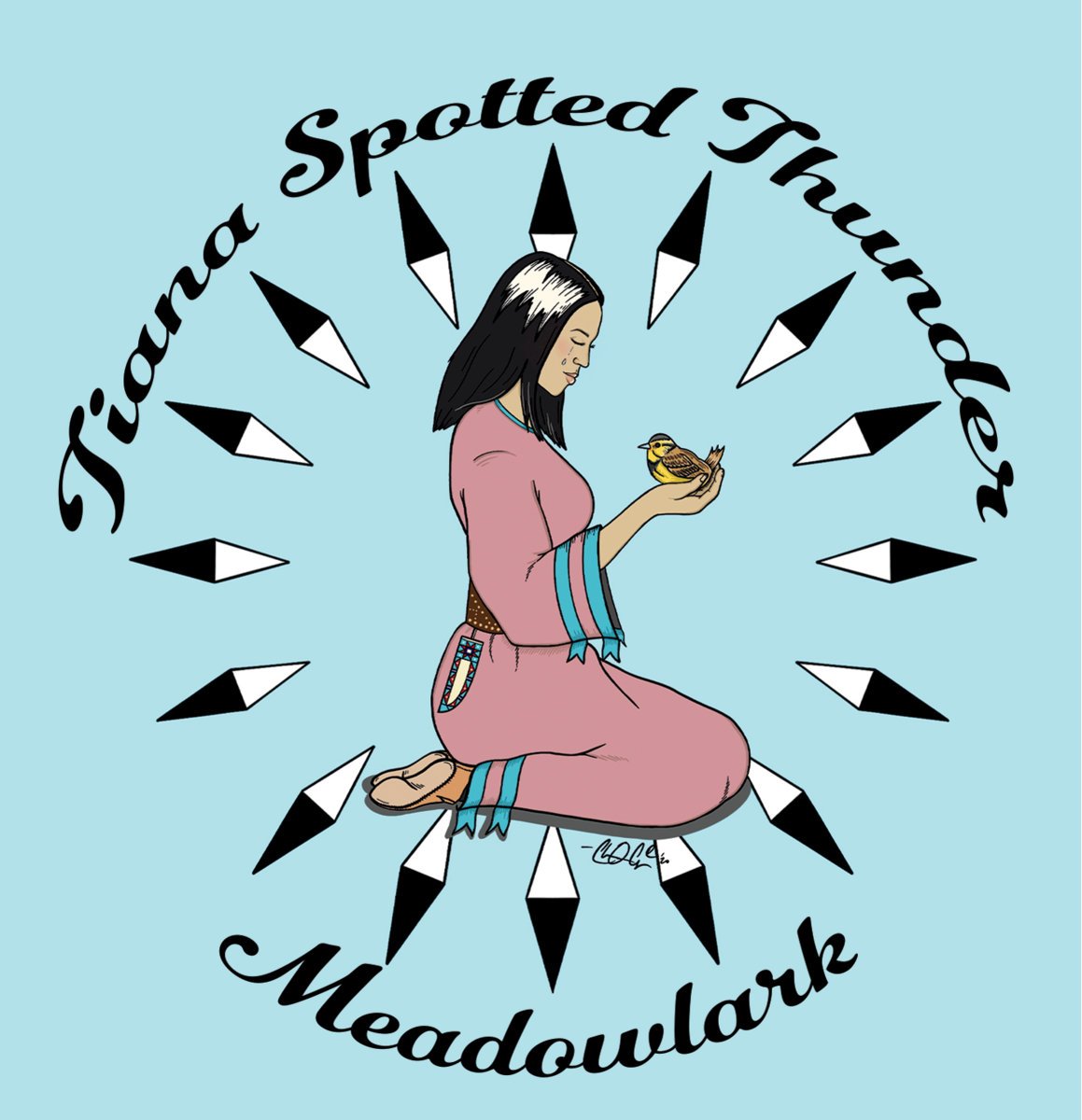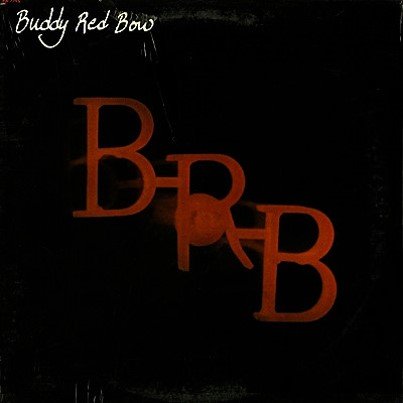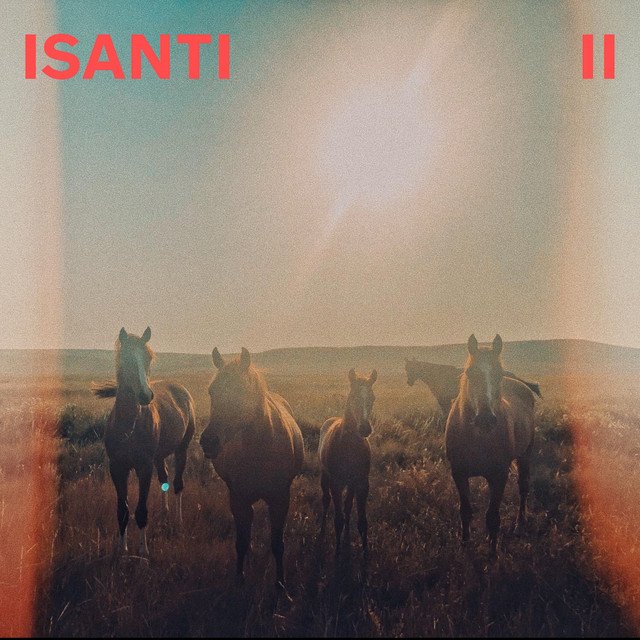The Wake Singers
The Wake Singers
2021 | Rock
— track 10: “Inajin Pe”
Mike Two Bulls: Grandpa Ed [Two Bulls] was prolific. He could whip out a painting in, like, 20 minutes. [Ed painted the cover art for Buddy Red Bow's 1983 album Journey to the Spirit World (See Tiger Meat #4)]. He was first cousins with our grandfather, Robert Two Bulls [Sr.], they all grew up together in the Red Shirt Table community, right there in the Badlands, the border of Cheyenne River. Yeah. Then your father is also a painter.
Reed Two Bulls: Yeah, my dad [Robert Two Bulls, Jr.] does a lot of acrylic work. He likes to focus on pop art. It's more or less cartoon. Our uncle [Marty Two Bulls Sr.] is a cartoonist, he tied for the Pulitzer Prize last year. All of our parents [are artists]. Doug's mom works upstairs out of her own studio, Lorri Ann [Two Bulls], she does painting, jewelry, some sculpture things with clay for pins and stuff.
Mike Two Bulls: Our cousin Marty Jr., man, he plays instruments, he’s a badass visual artist, he plays with us sometimes, whenever we can. We have a long history working with him musically, artistically as well. And our cousin Rick — yeah there's so many [laughs] — but he's a journalist. We're trying to get him to shoot our music video here.
Reed Two Bulls: Also Mike's older sister, Molly, she's a very well known beader. Kind of insane. She's gotten into Vogue a couple of times.
Mike Two Bulls: Yeah, she does well. I'm like, "Man, I got in the wrong business." [laughs]
//\\//\\//
Reed Two Bulls: To be in The Wake Singers, it’s a choice to live a fulfilled life doing what I love. It’s all about just following that dream that I’ve had, and that my cousins have had, of just making our music and getting it out there, and hoping that people like it, hoping that Native people, Native youth, are inspired to follow their own goals, follow their own dreams, and see that it’s possible.
I'm the baby of the group. I joined The Wake Singers in 2015, that was when I first recorded with them. So I was 15 at the time, I'm 22 now. I've been playing the blues in Minneapolis since I was about 16, as well as doing blues jams in the Twin Cities and creating community there. And then singing choir. My dad is a priest at All Saints Episcopal Indian Mission in South Minneapolis, so my mom and I would lead hymns in church. That's where I found that I could actually sing good.
Mike Two Bulls: I was born and raised here in Rapid City, Mni Luzahan. Doug and I kind of have similar stories because we grew up in the same household, we're cousins, first cousins technically. We always had music in the household. My mother would play piano, she was classically trained as a young child. When she taught me to play, she taught it differently. She felt that it was more important to memorize and to learn the melody by ear rather than reading. In public schools, first time I wanted to join band I was denied. They're like, "Oh, you need a year of piano." I was like, "Oh, I know how to do that!" But I didn't know how to read because my mom felt it was important to learn by ear. So later, I kind of realized that maybe that was beneficial in some ways, to just sit with something and kind of hash it out when you're listening. So that's kind of my origins, I suppose.
Ever since I was a young person I knew that I wanted to create using a paintbrush, or a pencil, or pen, or a guitar, drums, whatever. I realized that for many years, even before I was born, that in our homelands now the driving economy here is tourism. So I think, “What does tourism bring to the Indigenous population here? And what effects does it have?” I know that the tourist gaze, when they come here, they want to see Lakota culture and history, and oftentimes we are reduced to an artifact. And I think to myself, “Maybe, no longer, I want to be condemned to our past only.” There are many beautiful things to draw from Lakota past and present, but oftentimes it’s like we’re just caged into this past, and also romanticized. That’s an erasure of what’s happening now, I feel. And it’s hard to talk about those things through art and music because how do you do it? Now that we know our instruments, how do we move forward and what do we want to project out into the world? Topics like the systems of oppression can result in anger, but I think we have a right to be angry, it’s just what do we do with that anger? Do we take that anger and maybe take action, organize? Maybe that’s the key, and how do we fit into that as artists, as creatives? And that’s something I’m always analyzing, not by myself but with others. That’s the key: do it with others, especially the younger generation that’s coming up behind you because in our lifetime I feel that once we set that up, that dialogue, those issues, the next generation can pick it up and continue that hard work. That’s what brings me a lot of comfort and strength to move forward.
[Doug and I] went to art school together [around 2005 at the Institute of American Indian Arts in Santa Fe, New Mexico]. He went the semester before I did, he was like, "Hey man, you should come check it out. It's a really awesome scene down here." So, checked it out and we just kind of hit the ground running there, musically and artistically. We were young, early 20s, I don't think I was 20 yet, so it was that sort of vibe. All-Indigenous art school as well, it was pretty cool.
Doug Two Bulls: I was born in Rapid City, South Dakota. I play guitar.
Dan Carroll: I live in Rapid too, in between Rapid City and Rapid Valley. I play bass in the band. I started playing guitar middle-school-time, and just kind of played a bunch in the scene around here. Took guitar lessons, learned all the stuff I guess. It was pretty active at that time. [Amethyst de Wolfe] brought in a lot of good music. She held it down. There was a ton of great shows. Definitely lost something when she decided to move. But yeah, it's coming back. It’s awesome. Good stuff.
Mike Two Bulls: Oh, man, Dan's been in the music community forever.
Reed Two Bulls: How'd you join us, Dan?
Dan Carroll: Uh, I think I just started filling in, and then I was just in the band after a while [laughs]. It's always been fun though. It's really great to go over and jam. It was a pretty natural fit, at least on my end. I think I started on bass, and then I moved to guitar, and then I got demoted to bass again [laughs]. I think that was the process.
//\\//\\//
Doug Two Bulls: [The songs on The Wake Singers] weren't planned to be played live. Reed was living in Minneapolis, so it was just something we were going to put out.
Reed Two Bulls: So I guess to start, a lot of the bases of the songs came from Doug and Mike. Doug will write some riffs on his guitar and he'll sing along to it, he'll figure out lyrics. Doug writes most of lyrics, I help here and there. We work on melodies together, pretty much. I do a lot of the harmonies, do some keys. We all do keys, really. These guys do guitars, basses, drums obviously. Elaborate.
Doug Two Bulls: Voice memos. Like Reed said, it usually just starts out with the riff and we build on it, we workshop it. It’s a collaborative effort. I couldn’t do it alone, it all works because we all work together.
Mike Two Bulls: It’s very much like that. Get it down before we lose it, then keep pushing, keep going. Some of the songs are written while we're recording, experimenting with whatever we're on at the time. Other songs are done and we just have to sit down and produce it. Which for me, that's when the songs start to bloom and really start to take shape. And that's the part that's addictive, recording. I just really love that process. You listen to the guitar and it's a struggle, but that's just part of it.
Doug Two Bulls: Ben LeMay was on viola and violin, Kate [Weeks] was on violin, she brought the electric violin. Samson Ptacek had the cello. We knew those guys from the local rock scene in Rapid. We don't know how to score either, so we had to use piano and a guitar to help figure out the arrangements. We used voices too, like, "Could you kind of go like, 'Ooooo,' you know?" Something like that. And they were so good that they just nailed it in a few takes.
Mike Two Bulls: All I had to say to Kate Weeks, was like, "Kind of like Eleanor Rigby-ish." "Oh, gotcha."
Doug Two Bulls: Where the Cave [Collective] is now, we recorded [the self-titled album] there. Before it was The Cave it was the Racing Magpie. We [also] recorded here in our basement, HQ. And now we're going back over to the new Racing Magpie. We did do something out at Red Shirt Table. We took all our stuff up there, our gear, on the rez, and we recorded at a church in the guild hall, set up there for a week. That was an interesting process because, usually, before then, it was just Mike and I working on the melodies, then we'd get Reed in. We decided to just kind of do it all together. That's where "No Amulet [for Violence]" was born.
Mike Two Bulls: Prior to that we had another warehouse way on the west side of town. Yeah, it's so scattered. I mean, maybe a casual listener would be like, “Whatever,” but a musician or somebody might know the sound is pretty scattered because our studios have always been moving, constantly. We kind of go in these makeshift areas.
Doug Two Bulls: Yeah, it's all over. I mean, some of our friends think we’ve been working on our masterpiece or something, but it just takes time moving around. It's not like we're spending a year on one song. Just moving around a lot.
Mike Two Bulls: But that's the thing, this philosophy of work is about perfecting our songwriting-craft and also recording-craft. All these years it's just self-taught. Still learning.
Reed Two Bulls: Yeah, all this new gear that we got with a grant from the First Peoples Fund last year, it was like $7,000 to put towards the studio that we wanted to build here. We're learning how to use all this producing and recording gear now, which is super nice gear. So that's another learning curve we have to go through. Because we want to be able to produce our own stuff, and at some point hopefully we can produce some other bands too. We just got a new spot at Racing Magpie, so we moved in not too long ago. Still slowly trying to get the operation going. Hopefully this summer we can invite some other artists over. Pejuta Studio and Press, a lot of things are connected to it, it's kind of hard to give it a name. We're figuring it out.
[Racing Magpie] is a non-profit geared towards, you know, there's a lot of artists that have studios there. But also they write grants to promote community development in the arts. They just bought this brand new space, they haven't had their grand opening, but we did do a mural on the new building this last summer with Pejuta Press.
Mike Two Bulls: That was epic.
Reed Two Bulls: Epic. What was it, like, 20' by 40'? It's crazy.
//\\//\\//
Reed Two Bulls: We know what songs are going to go on the [next] album. It's just finishing them.
Doug Two Bulls: Because we had a total of, like, 27 songs. We put out half of that [for the self-titled album]. It sounds like we were really working a lot. But actually it was, like, six years, five years in the making.
Reed Two Bulls: Some of them need to be completely rebuilt and start it from the beginning. And then some are partially done, or mostly done, or they just need one thing. But we got it. It will be out soon.
Doug Two Bulls: Trying to push our sound a little bit. And hopefully, play out. I think Kenton [Alan James from the bands Sons of Sans Arc and Isanti] said he wanted us to play out in his area, out in Flandreau and Sioux Falls. So we'd like to go out to East River.
Mike Two Bulls: I mean, yeah. In between all those, we're always writing new material. Try to anyway.
Doug Two Bulls: We're always writing.
THE WAKE SINGERS’ ESSENTIAL SOUTH DAKOTA ALBUMS
Tiana Spotted Thunder — Meadowlark (2020)
Neon Eyes — EP1 (2021)
Purple Honey — coming around (2019)
The Reddmen — Sons of the Morningstar (2003)
Buddy Red Bow — BRB (1980)
Welcome to the Cinema — Blocks and Hills (2008)
Haley — Haley Bryn Bonar (2001)
Bazille — Ghost Plant (2021)
Dead Marthas — Volume One (2020)
Sons of Sans Arc —Vital Signs (2017)
Isanti — Isanti II (2021)
Friends of Cesar Romero — War Party Favors (2021)
The Weather Machines — The Sound of Pseudoscience (2006)
Someday Best — Deep Rest EP (2019)
SOURCES
Carroll, Dan, Doug Two Bulls, Mike Two Bulls, Reed Two Bulls. Interview. By Jon Bakken. 13 January 2022.
“The Wake Singers - Mni Sota Native Music Series.” YouTube, The Cedar Cultural Center, 15 July 2021, https://www.youtube.com/watch?v=r4FxQXkOTNM.
